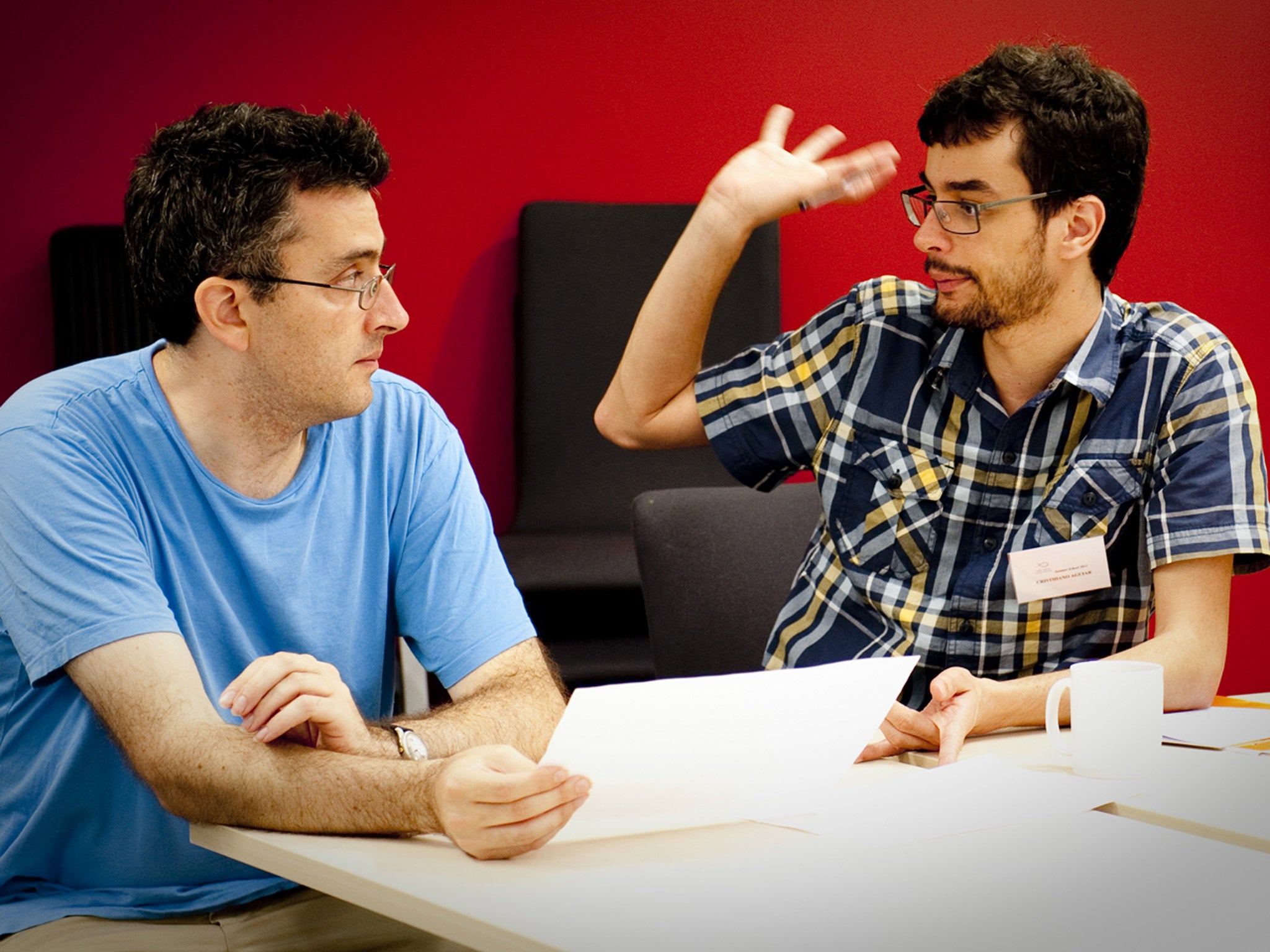Translation slam: A war of words
Tonight, two literary translators went head to head in a bloodless but book-filled battle. Simon Usborne explores the world of duels fought with dictionaries

For so long confined in silence to desks piled high with reference books, literary translators are emerging from the shadows to engage in the politest possible battle. Their weapons: commas, colons and alternative readings of foreign fiction. At stake: the spoils in a niche trade that is – rather bashfully – fighting for a share of the fame enjoyed by authors.
Last night, two titans of translation went head to head at a "duel" in London. Rosalind Harvey and Ollie Brock are experts in turning fancy Spanish into fancy English. They compete for commissions but increasingly they and their rivals also face-off on stage.
At the Free Word Centre in Farringdon, each offered an interpretation of a passage from the novel La Fiesta del Chivo (The Feast of the Goat, both would agree) by Mario Vargas Llosa. There were no points or prizes, but under the adjudication of Daniel Hahn, a translator and the Don King figure in a bloodless sport, they competed to best embody the author's voice.
At first the English looks predictably similar but then differences appear that subtly alter its tone. Compare the following:
Brock: "The dark-blue surface of the sea, stirred up here and there in foamy patches, goes to meet the leaden sky at the distant boundary of the horizon."
Harvey: "The sea, its dark blue surface disturbed by spots of foam, converges with a heavy grey sky on the distant horizon."
It is, Hahn concedes, a gloriously nerdy pursuit, but one he says deserves greater attention. "There's a strange conflict," he adds, "because while we're campaigning for recognition, we also know that if you read a book and don't notice the translator, we're succeeding."
To realise the value of the translator's work, he explains, "we could talk about it in the abstract for hours, but it's more compelling to look at real text and the real choices different translators make". Hahn hosted the first duel three years ago and they have been a hit at literary festivals. He and Harvey appeared on Radio 4's Today programme yesterday and, earlier this month, Hahn sold out a "Camus-off" at the Southbank Centre in London. Conflict at such events typically centres on comma placement, he says, and rarely inspires behaviour more violent than heated if highbrow debate.
Harvey, who got her break with the translation of Down the Rabbit Hole, the 2011 Mexican novel by Juan Pablo Villalobos, says it is the job of the translator to "find the author's voice in your language, to write the words they would have written if they could do so in English".
Reading, background and technique all lead to differences. Dictionaries are useful, but research, on- and off-line, is crucial. "The best tools are your friends," Harvey adds. "I regularly do informal polls of English and Spanish friends about a word's currency or register. For my latest book, I joined a farming forum to ask about the correct term for 'cattle frottage'."
Hahn, whose translation of The Book of Chameleons by José Eduardo Agualusa helped the Portuguese novel win the 2007 Independent Foreign Fiction Prize, says "machine" or digital translation is becoming increasingly smart, but he sees no threat to his job (yet Google's version of the Feast of the Goat line could be a lot worse: "The dark blue surface of the sea, overwhelmed by patches of foam, will meet a leaden sky on remote skyline").
Harvey says contact with authors can be minimal or, in the case of Villalobos, involve several conversations. Most are understandably delighted by the prospect of an English- speaking audience.
Others illustrate a cultural difference between symbiotic trades. "Translators are often described as writers with less ego," Harvey says. "It's nice to be behind the scenes putting an author on a world stage but it's also nice to win a bit of glory."
Join our commenting forum
Join thought-provoking conversations, follow other Independent readers and see their replies
Comments
Bookmark popover
Removed from bookmarks